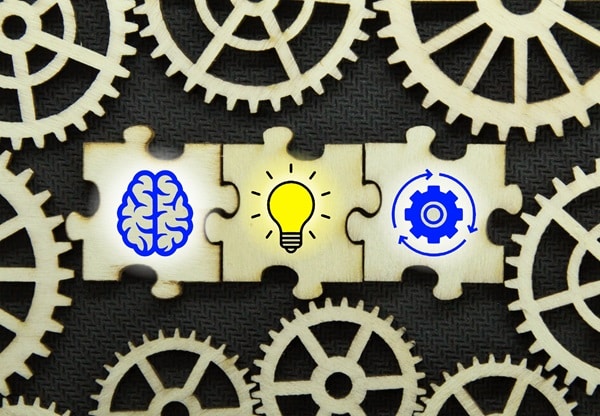Conscience, the inner moral compass guiding human actions, has long been a subject of fascination and inquiry. What is this invisible force that nudges us toward right and wrong? Is it a product of biological wiring, a construct of societal norms, or perhaps a blend of both? Understanding the origins of conscience is not merely an intellectual exercise; it has profound implications for ethics, law, and the fabric of society. This article delves into various theories and perspectives that attempt to explain where our conscience comes from, ranging from biological factors to cultural influences. By exploring these diverse viewpoints, the article aims to offer a comprehensive understanding of this complex and elusive phenomenon.
Contents
The Biological Perspective

The Role of the Brain
The human brain, often considered the seat of consciousness, plays a pivotal role in moral decision-making. Neuroscientists have identified specific brain regions, such as the prefrontal cortex and the amygdala, activated when individuals face ethical dilemmas. These areas are associated with reasoning, empathy, and emotional regulation, suggesting that our moral compass might be hardwired into our neural circuitry. Functional MRI studies have even mapped brain activity during ethical quandaries, providing empirical evidence for the biological basis of conscience.
Evolutionary Psychology
From an evolutionary standpoint, the development of conscience can be seen as a survival mechanism. Early human communities that exhibited traits like empathy, altruism, and fairness had a competitive edge over those that did not. These moral traits promoted social cohesion and cooperation, essential for the group’s survival. Over time, natural selection favored individuals with a strong sense of right and wrong, effectively embedding moral codes into our genetic makeup. Thus, conscience may have evolved as a biological tool to facilitate social interaction and collective survival.
The Psychological Perspective

Freud’s Theory
Sigmund Freud, one of the most influential psychologists of the 20th century, proposed a tripartite model of the human psyche: the Id, Ego, and Superego. According to Freud, the Superego serves as the moral compass, internalizing societal norms and parental teachings. It acts as a counterbalance to the Id, which is driven by primal desires and impulses. The Ego, caught in the middle, negotiates between the demands of the Id and the moral imperatives of the Superego. In this framework, conscience is essentially the voice of the Superego, guiding individuals toward socially acceptable behavior.
Cognitive Development Theories
While Freud focused on the internal dynamics of the psyche, other psychologists have explored how conscience develops over time. For instance, Lawrence Kohlberg’s stages of moral development outline how individuals progress through different levels of ethical reasoning as they mature. Children initially obey rules to avoid punishment but gradually move toward more complex moral thinking, such as adhering to social norms and eventually reaching a stage of universal ethical principles. This developmental approach suggests that conscience is not static but evolves through various cognitive and emotional growth stages.
The Philosophical Perspective

Classical Theories
Philosophers have long grappled with the concept of conscience and its origins. Classical thinkers like Socrates, Plato, and Immanuel Kant proposed that conscience is an innate faculty, a rational guide to moral behavior. For Socrates, conscience was akin to an inner voice or divine sign that guided him away from wrongdoing. Conversely, Kant posited that conscience arises from the categorical imperative, an innate sense of moral duty. These theories suggest that conscience is not merely a social construct but a fundamental aspect of human nature.
Modern Philosophical Views
In contrast to classical theories, modern philosophical perspectives like existentialism and postmodernism offer a more nuanced view of conscience. Existentialists argue that individuals are free agents responsible for creating their moral values. In this framework, conscience is a product of individual choice and existential freedom. Postmodernists, however, question the notion of a universal conscience, arguing that moral values are culturally and historically contingent. These contemporary viewpoints add complexity to the understanding of conscience, emphasizing the role of individual agency and cultural context.
The Cultural Perspective

Cultural Relativism
The notion of conscience is not universally consistent; it varies significantly across different cultures. Cultural relativism posits that moral codes and ethical norms are shaped by the cultural environment in which individuals are raised. For example, what may be considered morally acceptable in one culture could be taboo in another. This perspective challenges the idea that there is a universal moral compass guiding all human behavior. Instead, it argues that conscience is a flexible construct molded by cultural norms, traditions, and values.
Role of Religion
Religion plays a significant role in shaping the conscience of individuals and communities. Religious texts and teachings often serve as moral guidelines, outlining right and wrong. From the Ten Commandments in Judaism and Christianity to the Five Pillars of Islam, religious doctrines offer ethical frameworks that influence the conscience of their followers. However, the role of religion in shaping conscience is complex and can sometimes lead to ethical conflicts, especially when religious teachings clash with secular laws or social norms.
The Societal Perspective

Social Contract Theory
The societal perspective on conscience often draws from social contract theories, which suggest that moral and ethical norms arise from implicit or explicit agreements among members of a society. According to thinkers like Thomas Hobbes and Jean-Jacques Rousseau, individuals agree to adhere to certain rules and norms in exchange for social benefits like security and order. In this context, conscience can be seen as a byproduct of societal agreements, a collective understanding of right and wrong behavior.
Media and Conscience
In today’s interconnected world, the media plays a crucial role in shaping individual and collective conscience. News outlets, social media platforms, and entertainment media contribute to public opinion and ethical viewpoints. For instance, the media’s portrayal of social issues like racial inequality, climate change, or political corruption can influence how people perceive these issues and what they consider morally right or wrong. This highlights the power of media in shaping societal conscience, for better or worse.
The Intersectionality of Conscience

Nature vs. Nurture
The origins of conscience are complex and multifaceted, often involving an interplay between biological and environmental factors. While some research suggests that individuals may be genetically predisposed to certain moral inclinations, upbringing, and social environment also play a significant role. For instance, studies involving twins separated at birth have tried to quantify the influence of genetics versus environment, but the results are inconclusive. This suggests that conscience is likely shaped by both nature and nurture.
Global Conscience
In an increasingly globalized world, the concept of a collective conscience that transcends individual and cultural boundaries is gaining traction. Global events like climate change, human rights movements, and international conflicts often evoke a shared sense of moral responsibility. Social media and global news coverage contribute to this sense of global conscience, allowing people from diverse backgrounds to unite over common ethical concerns.
The Implications of Understanding Conscience

Ethical Implications
Understanding the origins and complexities of conscience has significant ethical implications. For instance, it can inform ethical decision-making in various fields, such as law, politics, and medicine. By recognizing the diverse factors that shape conscience, policymakers and ethicists can develop more nuanced approaches to moral dilemmas, from criminal justice reform to bioethical considerations in healthcare.
Personal Development
On a personal level, understanding the origins and influences of one’s conscience can lead to meaningful self-reflection and personal growth. Methods like introspection, mindfulness, and ethical education can help individuals better understand their moral compass. This, in turn, can lead to more informed decisions and a more fulfilling life.
The Bottom Line
The origins of conscience are a complex interplay of biological, psychological, philosophical, cultural, and societal factors. While each perspective offers valuable insights, the amalgamation of these viewpoints provides a comprehensive understanding of this elusive phenomenon. Understanding where our conscience comes from is not just an academic exercise; it has profound implications for personal development, ethical decision-making, and the broader fabric of society. As we navigate the ethical complexities of the modern world, a deeper understanding of our moral compass can serve as a crucial guide, helping us to live more thoughtful and meaningful lives.